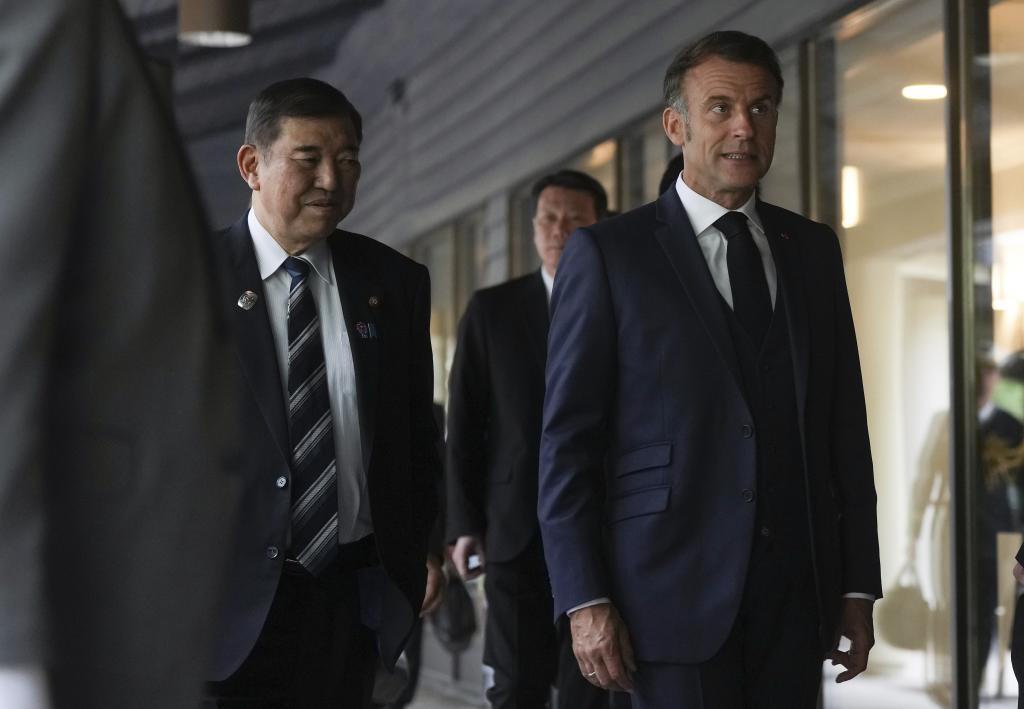Following the failure of the G-7 summit, Emmanuel Macron has set out to relaunch in the coming days "an initiative, with close European partners, to propose a negotiated and demanding solution" to the conflict between Israel and Iran, as specified by the Elysee Palace.
In this context, the first step could be the meeting announced by the IRNA agency between Iranian Foreign Minister Abbas Araghchi and his European counterparts in Geneva on Friday. French Foreign Minister Jean-Noël Barrot has shown his "availability" for the meeting, which would also be attended by the EU's foreign policy chief, Kaja Kallas. However, neither Tehran nor Paris have officially confirmed the meeting.
"It is urgent to end these military operations, which represent serious threats to regional security," Macron declared after a meeting with his Defense Council late on Wednesday. Despite the humiliation suffered at the hands of Donald Trump after his snub at the G-7 ("Emmanuel is always wrong"), the French president is trying to put forward an initiative supported by Paris, London, and Berlin, ensuring Iran's return to negotiations on its nuclear program.
Statements by German Chancellor Friedrich Merz, who is closest to Israel, stating that Netanyahu "is doing the dirty work for us," have, however, highlighted frictions among European partners. British Prime Minister Keir Starmer has also tried to keep his distance, following tensions that surfaced at the G-7, to avoid jeopardizing his own bilateral relationship with Donald Trump.
Macron has maintained an ambivalent attitude towards the conflict between Israel and Iran, in contrast to his harsh criticism of military operations in Gaza. "We do not share the need for a military operation," were his first statements. "However, when I look at the results of these attacks, I see that they have reduced ballistic and uranium enrichment capabilities. Israel has the right, like all peoples, to live free from the anguish of annihilation," he added.
However, Netanyahu perceives the French president as the leader of "a crusade against the State of Israel," due to his stance on operations in Gaza and his willingness to recognize the State of Palestine at a conference initially planned for this week in New York - at the initiative of Saudi Arabia - and ultimately suspended due to the conflict with Iran.
Meanwhile, British Foreign Secretary David Lammy met in Washington on Thursday with Secretary of State Marco Rubio to convey a message of "diplomacy and de-escalation" in the conflict. To date, the United Kingdom has not directly participated in Israel's defensive operations following Iran's military response.
"We are facing a real risk of escalation, and the situation is moving very fast, so it is really important to stick to key principles," emphasized Prime Minister Keir Starmer after a Cobra emergency cabinet meeting. "Obviously, all of us, including the UK, are concerned about the development of Iran's nuclear program. We have also recognized Israel's right to self-defense, but we need to de-escalate the situation due to the impact it can have on the region and beyond the region (...) It is better to resolve it through negotiation than through conflict."
Liberal Democrat Party spokesperson Ed Davey meanwhile called for the publication of Government legal advisor Richard Hermer's recommendation on a hypothetical UK participation in the offensive against Iran. "The last thing our country needs is to be dragged by the United States into another illegal war in the Middle East," Davey declared, directly referring to the Iraq war.
